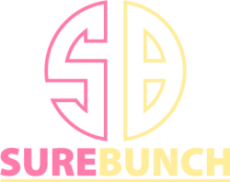If you’re looking for an organic European baby formula, you’ve come to the right place. Read this guide to learn about its ingredients, health benefits, legality in the U.S., and reputation among vendors. Here are some of the top questions you should ask to find the best organic European Organic’s Best for your child. Ultimately, it will depend on your budget and what you’re looking for in a formula. Hopefully this will give you some good ideas to start shopping around.
Ingredients
If you are looking to feed your baby a healthy formula, consider buying organic. European formula is more regulated in terms of ingredients and production processes. For example, it is illegal to include locust gum, guar gum, pectins, fructans, and carrageenan. These additives are commonly found in US formulas. Additionally, European formulas contain L-Carnitine, which is needed for infant brain development, and Inositol, which is not commonly found in US formula.
Compared to conventional baby formula, organic formula is better for the environment. It is produced without pesticides and other chemicals, and there is a higher level of testing. Organic formula brands follow strict certification processes that preserve biodiversity and leave minimal carbon footprint. They are also easier to find. These factors make organic formula a better choice for your infant. There are several reasons to choose organic. If you’re not sure whether you should use organic or non-organic formula, try the German or European brands first.
Health benefits
If you’re looking for a healthy baby food that will nourish your child, consider the health benefits of organic European baby formula. Probiotics and prebiotics are the key components of this type of food. These good bacteria are present in the digestive system of adults, which help improve immunity. Babies do not have these beneficial bacteria, and have to obtain them through breast milk and other sources. By introducing organic baby food to your child at an early age, you can avoid digestive issues as well as boosting their immune system.
The most important difference between European and non-European baby formula is price. European formula is generally cheaper than their non-European counterparts, and it’s not hard to see why. The difference is the ingredients. Inorganic formula, however, can be contaminated with hazardous substances. Moreover, many of these ingredients are missing in organic formula, such as carrageenan, which is known to cause health problems.
Legality in the U.S.
There is a nagging question in my mind: Is it legal to purchase organic European baby formula in the U.S.? Is it safe for my baby? The answer depends on several factors, including whether or not the EU products are regulated by the Food and Drug Administration. Let’s look at each factor in more detail. In addition to legality issues, we should look at the nutritional differences between these two types of baby formula.
In general, the Food and Drug Administration (FDA) regulates the safety and quality of baby formula sold in the U.S. While European baby formula isn’t sold in stores here, it is primarily imported by third-party vendors. One such company, Beyond Organic Baby, advertises heavily on the internet. The company is not required to register with the FDA, but the importation process is more straightforward than in the U.S.
Reputation of vendors
European baby formula has a reputation for being the best on the market, but how does one know that it’s really organic? For starters, the word “organic” is used a bit loosely. However, European baby formulas are among the most genuinely organic brands available. HiPP, a renowned laboratory in Europe, analyzes more than 1,200 parameters before certifying any product as organic.
Closer
Currently, the only way to import European baby formula is online. In addition to meeting the U.S. standards, these imported formulas can be regulated by the FDA. However, because they are not sold directly to the public, they may not be completely safe to use. The formula might also be contaminated during shipping. However, despite the risk, the market for imported formula is relatively small, and the shortage is not expected to last long.

